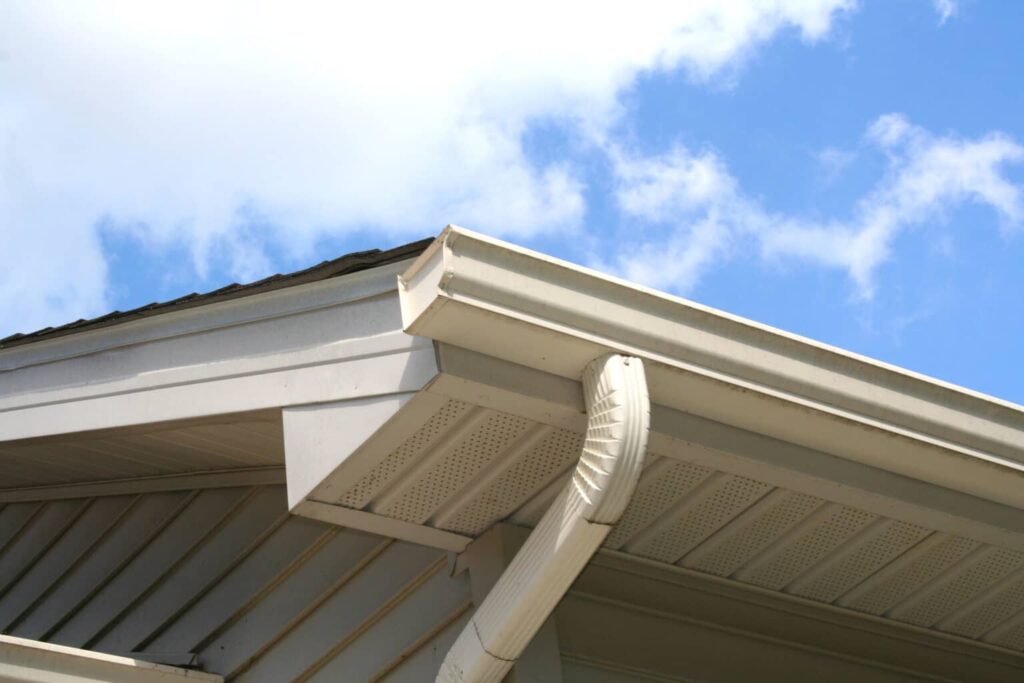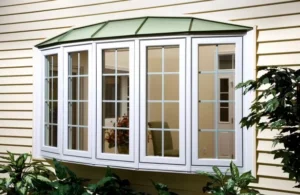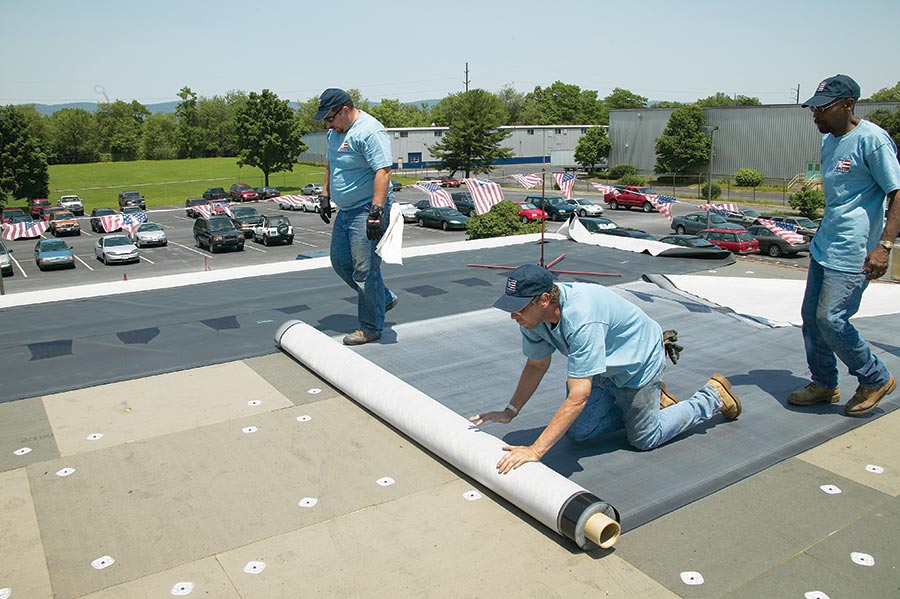A hail storm is never a good thing. It can quickly cause damage to all sorts of property, including your car, home, and more. If you’ve been in the eye of a storm, you may be wondering what to do next and whether to file a claim for hail damage.
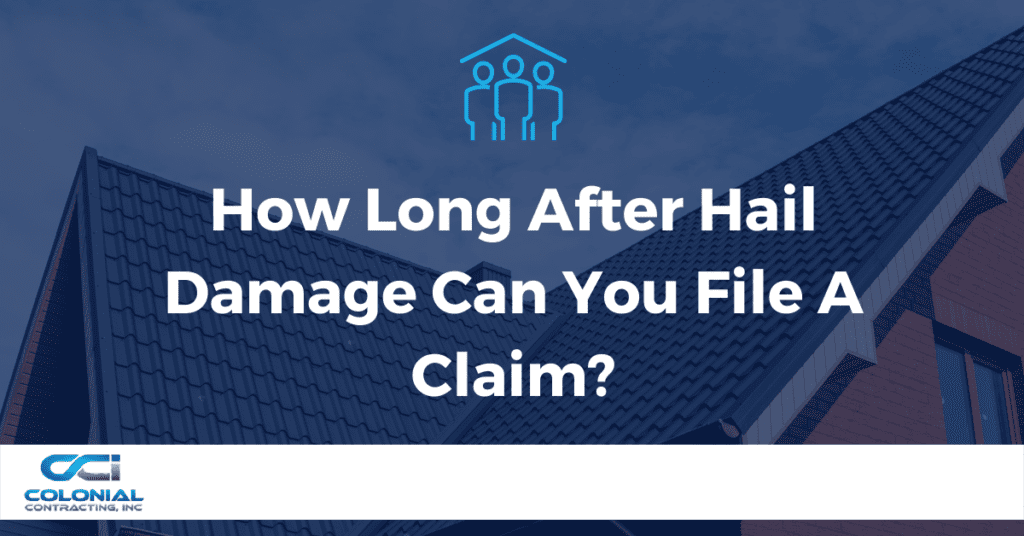
What To Do After A Hail Storm
First things first, after a storm, take the time to evaluate any hail or storm damage. You may want to get on your roof for a closer look, but we advise homeowners to stay safely on the ground. Damage to a roof, especially after a wind storm or significant weather event, may not be visible to the untrained eye. This creates an unsafe environment for a homeowner to explore.
Instead, after the storm, walk around your home and look for signs of damage from the ground. Your roof, gutters, siding, and more may have experienced damage. While gutters and siding are easily visible, you may be limited on what roof problems you can see. That’s ok. It’s better to stay safe and let the professionals assess your home’s damage.
Looking For Signs of Damage After A Hail Storm
Sometimes, damage to roofs is evident. If there is a significant leak in the home or an obvious hole in the roof, you know that you sustained damage and need a considerable roof repair or complete roof replacement.
However, roofs may not necessarily show signs of damage or have damage in areas that can’t be seen from the ground. Rather than take action that puts you in harm’s way (like climbing up on an unsafe roof that has been hit by hail), it’s best to look for other indicators that the hailstorms may have impacted your home.
One of the first signs to look for is roofing materials in your front yard. In many cases, hailstorms come with strong winds that can dislodge roof shingles or shingle granules. If you notice shingles or granules on the ground around your home, you may have sustained hail and wind damage.
You may also notice bumps or dimples on your roof. These are caused by hailstones hitting the roof and are a sign that your roof likely experienced direct hail impacts, which can lead to immediate damage or cause problems down the road.
Lastly, leaks in your home are a reason to suspect roof damage. Obvious drips are a sure sign the storms impacted you but discoloring on your ceiling, and small spots are cause for concern too.
Take pictures of anything you notice as soon as possible. Your photos and documentation can help provide evidence of damage to your insurance agent during your claim process.
When To Call Your Insurance Company And A Professional Roofer

After you’ve inspected your home, you may have questions about the condition of your roof and how to get started on repairs. At this point, it’s time to call your insurance company and file a claim. This may fall under your comprehensive coverage. To file an insurance claim, you’ll typically need your homeowner’s policy information, such as your policy number. If you can’t find your paperwork or policy information, ask your agent or insurance company to help you locate it. They can typically pull up your information with your name and address.
After claims have been initiated, you’ll be assigned an adjuster that will work with you throughout your claim. The adjuster will likely be working in your area and will inspect your home, looking for signs of roof damage and areas that need repairing or replacing.
The adjuster will write up their opinion on the damage, claim, and the compensation (or money) you are due.
After you start the claim and open a file with your insurance company, reach out to a professional roofing contractor in your area before you begin any repairs. Most roofing services companies will provide a free no-obligation inspection, and having a second opinion on what’s damaged can be of value during the claims department process.
At CCI, our inspection process is designed to complement the steps that insurance companies follow and provide the information your adjuster needs to assist in the claims process. Having a professional roofer work with your insurance company can make your repairs go smoothly and quickly.
By working with a contractor immediately after the storm, you’ll be able to get started on your repairs as soon as your adjuster approves them, and you receive compensation from your insurance company.
In some situations, your homeowners insurance requires that you work with a specific contractor that they have approved. If that is the case, take the time to review the contractor they have identified during the insurance claims investigation. You want to make sure that they’re experienced with all types of roofs and that they have a solid reputation and positive reviews from other homeowners who have made a claim in your area. If you’re uncomfortable with the roofing contractor your insurance company recommends, let them know before roof work begins on your home.
Repairing Your Home After Storm Damage and Hail Damage
Once you file an insurance claim and begin the process with your insurance company, your adjuster will let you know if you’re approved to begin making the repairs to your home. It’s a good idea to get started as soon as possible because damage can worsen over time as your roof is exposed to the elements. This is especially true during storm season. If, for any reason, your homeowners insurance claim is taking a while for approval, ask your local roofing contractor to help protect your roof if you have leaks or major damage that you’re concerned about. For example, if you have water leaks in your home, a tarp may protect further property damage from occurring while the claims adjuster works on your file.
Once approved, your roofing contractor will get started on making the necessary repairs. As the homeowner, you should be kept up to date on the timeline of the repairs and understand what is being done. Knowing whether you had hail damage, wind damage, or general damage and what is covered by your policy is important and may save you money in the long run if you take the time to learn your policy details and rights.
Is A Hail Damage Claim Worth It?
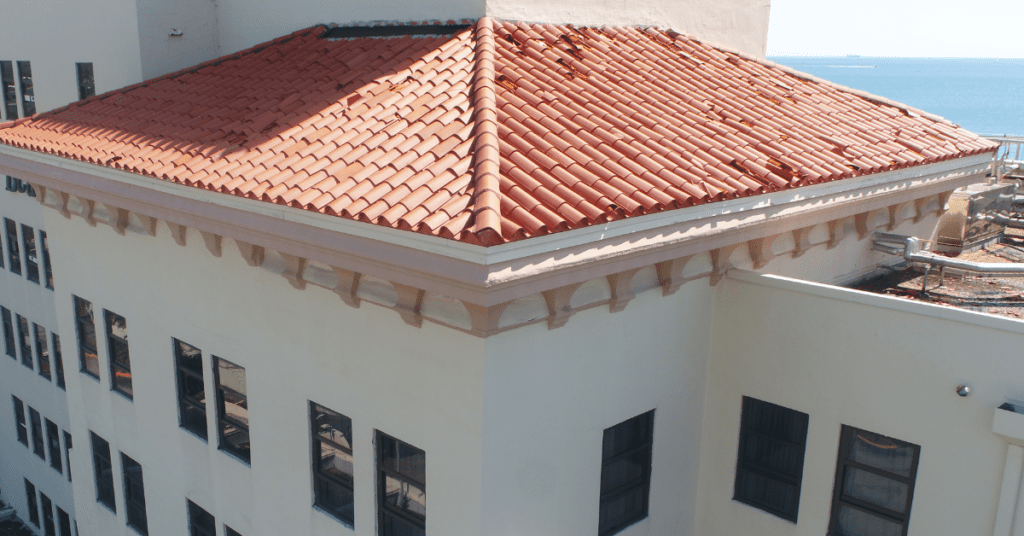
Filing an insurance claim makes sense if the significant damage you sustained costs more to repair than your deductible. Let’s break this down. With most claims and insurance policies, you have a specific deductible you must meet as the homeowner. For this example, we’ll say that your deductible is two thousand dollars. This is the amount you’ll have to pay to use insurance to repair damage from the storms – whether to a window, gutters, roof, etc.
Now let’s say that the insurance adjuster and the roofing companies are estimating the hail and repair to be only one thousand dollars. In that case, if you file an insurance claim, you won’t receive any benefit, and you may see a future increase in insurance premiums because you filed a claim.
On the other hand, if the estimated repairs from your insurance adjuster and contractor are seven thousand dollars and your deductible is two thousand, it makes a lot of sense to file a claim, even if your premiums go up slightly as a result.
Not all claims will cause an increase in home insurance rates or premiums, but it is one of those questions that may be helpful to ask when you file a claim. Ask your adjuster how rates are calculated and if insurance claims, especially if it’s your first one, play a big role. For most states, there are state laws that protect consumers and have a say over the insurance business regarding ethics, fraud, and more but not explicitly related to rates.
What To Do If You’ve Had Hail Damage
Follow the steps above to file a claim with your insurance and reach out to a local roofing contractor you can trust. At CCI, we are not like many others in our industry who are interested in only making sales after the storm. We are active members of our community, and we’ve been here, working on behalf of our clients through many storms.
We know that experiencing hail hits damage and any damage to your home can be stressful, and we’ll help you walk through the process every step of the way. From offering our free, no-obligation roof inspection after a hail storm to helping you understand exactly what hail damage your home has sustained. We’ll also inspect the rest of your home and bring any areas of concern to your attention. We work closely with your insurance if you file a hail damage claim and can be a trusted resource for you – and your insurance company.
We live and work in this community, and we’re proud to have a team of expert contractors and roofers that can help you through any hail damage repair or complete roof replacement. Contact our team today at 703-754-9551 if you have questions or want to talk to a member of our team.
Trusted by Industry Experts









